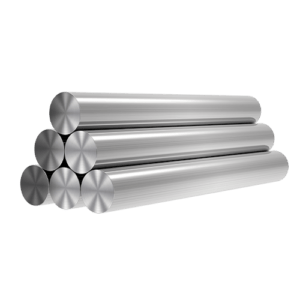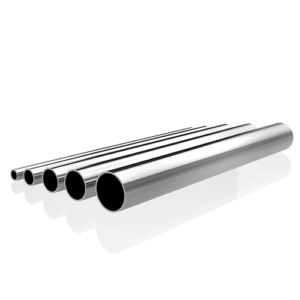Welcome to My Blog!
Before we dive into the content, I’d love for you to join me on my social media platforms where I share more insights, engage with the community, and post updates. Here’s how you can connect with me:
Facebook:https://www.facebook.com/profile.php?id=100090063158454
Now, let’s get started on our journey together. I hope you find the content here insightful, engaging, and valuable.
Table of Contents
Introduction

Stainless steel is a versatile alloy of iron and chromium, renowned for its exceptional resistance to corrosion and high-temperature oxidation. This remarkable property is attributed to the formation of a passive chromium oxide film on the surface, which acts as a protective barrier. The chromium content, typically exceeding 10.5%, is the key factor that distinguishes stainless steel from ordinary steel.
Why Choose Stainless Steel Manufacturers?
Directly sourcing stainless steel products from stainless steel manufacturers offers numerous advantages:
- Customization: Stainless steel manufacturers can tailor products to specific requirements, ensuring optimal performance and durability.
- Quality Assurance: Rigorous quality control measures implemented by stainless steel manufacturers guarantee consistent product quality and reliability.
- Competitive Pricing: By eliminating intermediaries, stainless steel manufacturers can often provide cost-effective solutions without compromising on quality.
- Direct Support: Stainless steel manufacturers offer direct technical support and assistance, facilitating efficient problem-solving and addressing specific needs.
Understanding Stainless Steel Grades
Stainless steel is available in a wide range of grades, each possessing distinct properties and ideal for specific applications. Here are some of the most common grades:
- 304: This versatile grade offers a balanced combination of corrosion resistance and formability, making it suitable for a broad spectrum of applications, including food processing equipment, automotive components, and architectural elements.
- 316: Known for its exceptional corrosion resistance, particularly in harsh environments such as marine and chemical processing industries, 316 grade is widely used in marine hardware, pumps, valves, and heat exchangers.
- 430: A magnetic and cost-effective grade, 430 is commonly employed in decorative applications, automotive exhaust systems, and cookware.
Factors to Consider When Choosing a Stainless Steel Manufacturers
When selecting a stainless steel manufacturers, it is essential to consider the following factors:
- Product Range: Ensure the stainless steel manufacturers offers a comprehensive range of products that align with your specific needs, whether it’s sheet metal, pipes, fittings, or specialized components.
- Production Capacity: Verify the stainless steel manufacturer’s production capacity to ensure timely delivery and the ability to meet large-scale projects.
- Certifications: Look for certifications such as ISO 9001, indicating adherence to rigorous quality management systems and commitment to delivering high-quality products from stainless steel manufacturers.
- Experience: A stainless steel manufacturers with extensive experience in the industry possesses the knowledge and expertise to provide valuable insights, innovative solutions, and reliable products.
- Location: Consider the stainless steel manufacturer’s location in relation to your business to optimize shipping costs and logistics.
Key Properties of Common Stainless Steel Grades
| Grade | Chromium Content (%) | Nickel Content (%) | Corrosion Resistance | Applications |
|---|---|---|---|---|
| 304 | 18 | 8 | Good | Kitchen equipment, automotive parts, building materials |
| 316 | 16-18 | 10-14 | Excellent | Marine applications, chemical processing equipment |
| 430 | 17-18 | Low | Good | Decorative trim, automotive exhaust systems |
The Manufacturing Process
The production of stainless steel involves a complex series of processes:
- Melting: Raw materials, including iron ore, chromium, nickel, and other alloying elements, are melted in high-temperature furnaces.
- Alloying: Precise amounts of alloying elements are added to the molten metal to achieve the desired grade and properties.
- Casting: The molten metal is cast into ingots or billets, which serve as the starting material for further processing.
- Hot Rolling: The ingots or billets are heated and rolled into slabs or plates, reducing their thickness and imparting specific mechanical properties.
- Cold Rolling: The hot-rolled material is further processed through cold rolling to achieve precise dimensions, improved surface finish, and enhanced mechanical properties.
- Finishing: A variety of finishing processes, such as annealing, pickling, and polishing, are applied to the steel to impart specific surface finishes and properties.
Common Stainless Steel Applications

Stainless steel’s exceptional properties make it indispensable in a wide range of industries and applications:
- Food and Beverage: Its corrosion resistance and hygienic properties make it ideal for food processing equipment, kitchen utensils, and storage containers.
- Architecture: Stainless steel is widely used in architectural applications, including building cladding, roofing, facades, and structural components, due to its durability, aesthetic appeal, and low maintenance requirements.
- Automotive: Stainless steel is employed in various automotive components, such as exhaust systems, body panels, and structural elements, owing to its strength, corrosion resistance, and lightweight properties.
- Medical: The biocompatibility and corrosion resistance of stainless steel make it suitable for medical devices, surgical instruments, and implants.
- Chemical Processing: Stainless steel’s excellent corrosion resistance and high-temperature strength make it ideal for chemical processing equipment, tanks, pipes, and valves.
Conclusion
Selecting the right stainless steel manufacturers is crucial for ensuring the quality, performance, and cost-effectiveness of your products. By carefully considering factors such as product range, certifications, experience, and location, you can establish a strong partnership with a reliable stainless steel manufacturers. Remember to communicate your specific requirements clearly and discuss your project in detail to ensure optimal results.
FAQ
What is the difference between stainless steel and carbon steel?
Stainless steel contains chromium, which forms a protective oxide layer, making it highly resistant to corrosion. Carbon steel, lacking this protective layer, is susceptible to rust and corrosion.
How is stainless steel recycled?
Stainless steel is highly recyclable, and its recycling process involves melting and reprocessing the scrap metal into new stainless steel products.
Can stainless steel be welded?
Yes, stainless steel can be welded using appropriate welding techniques and filler metals to ensure the integrity of the weld joint.
What is the best stainless steel for outdoor use?
316L grade stainless steel is often considered the best choice for outdoor applications due to its excellent corrosion resistance, particularly in marine environments.
